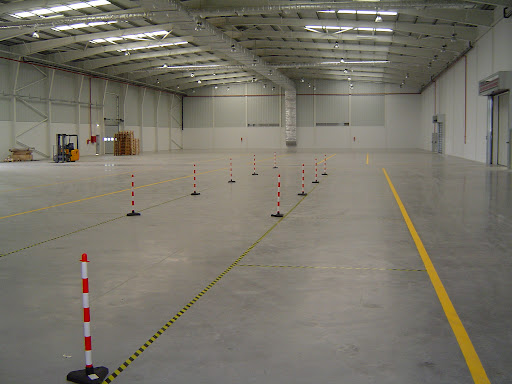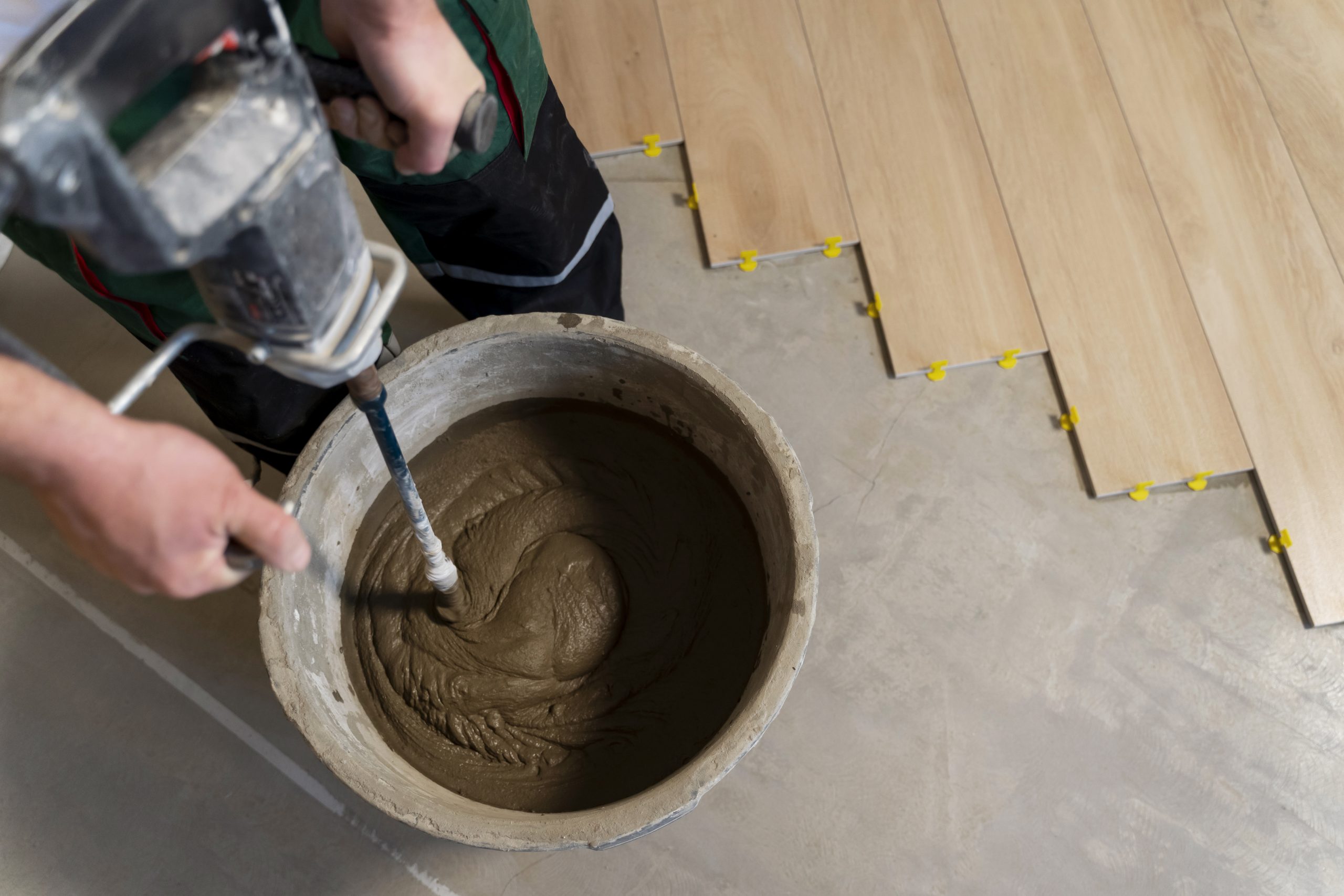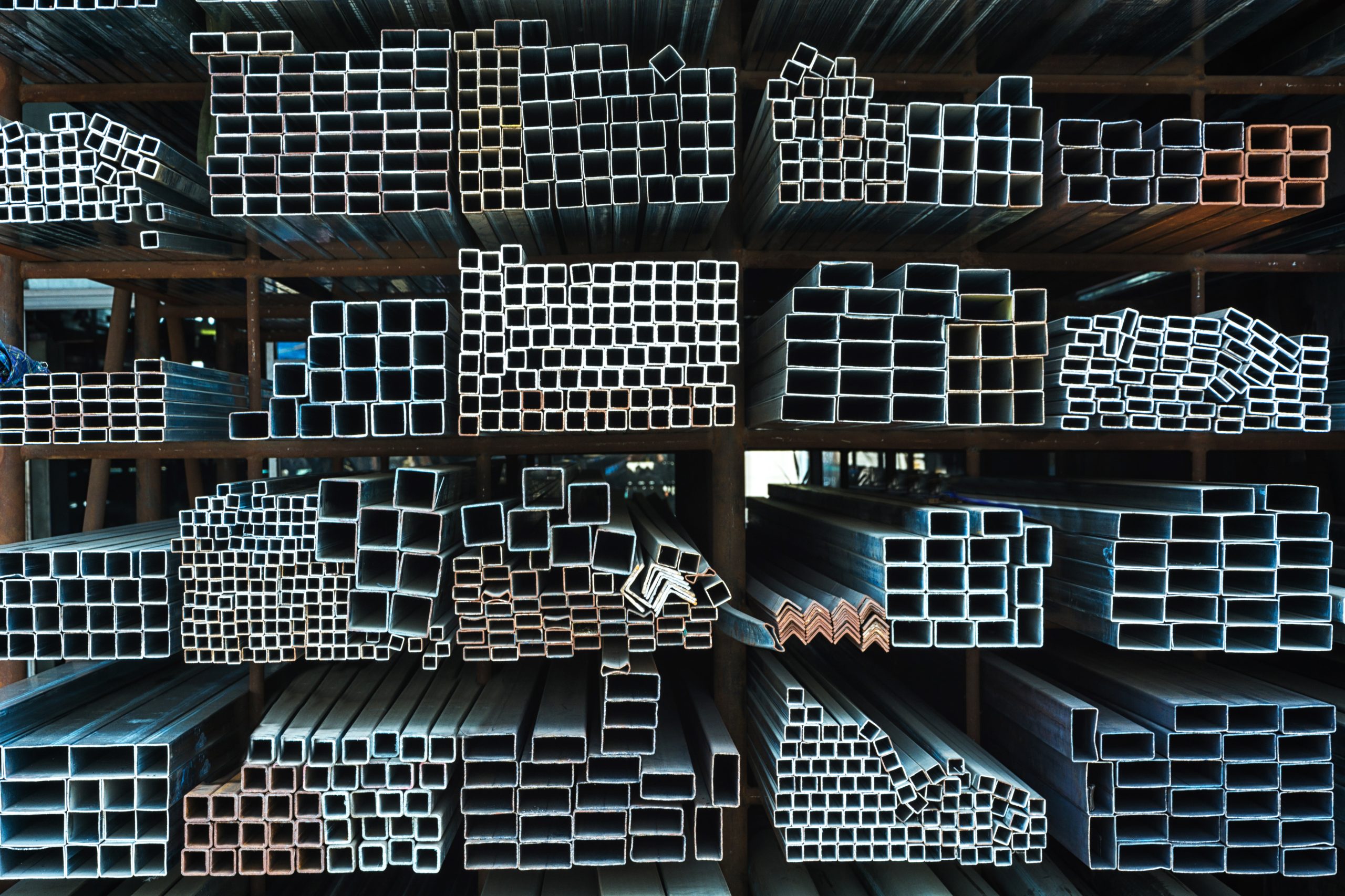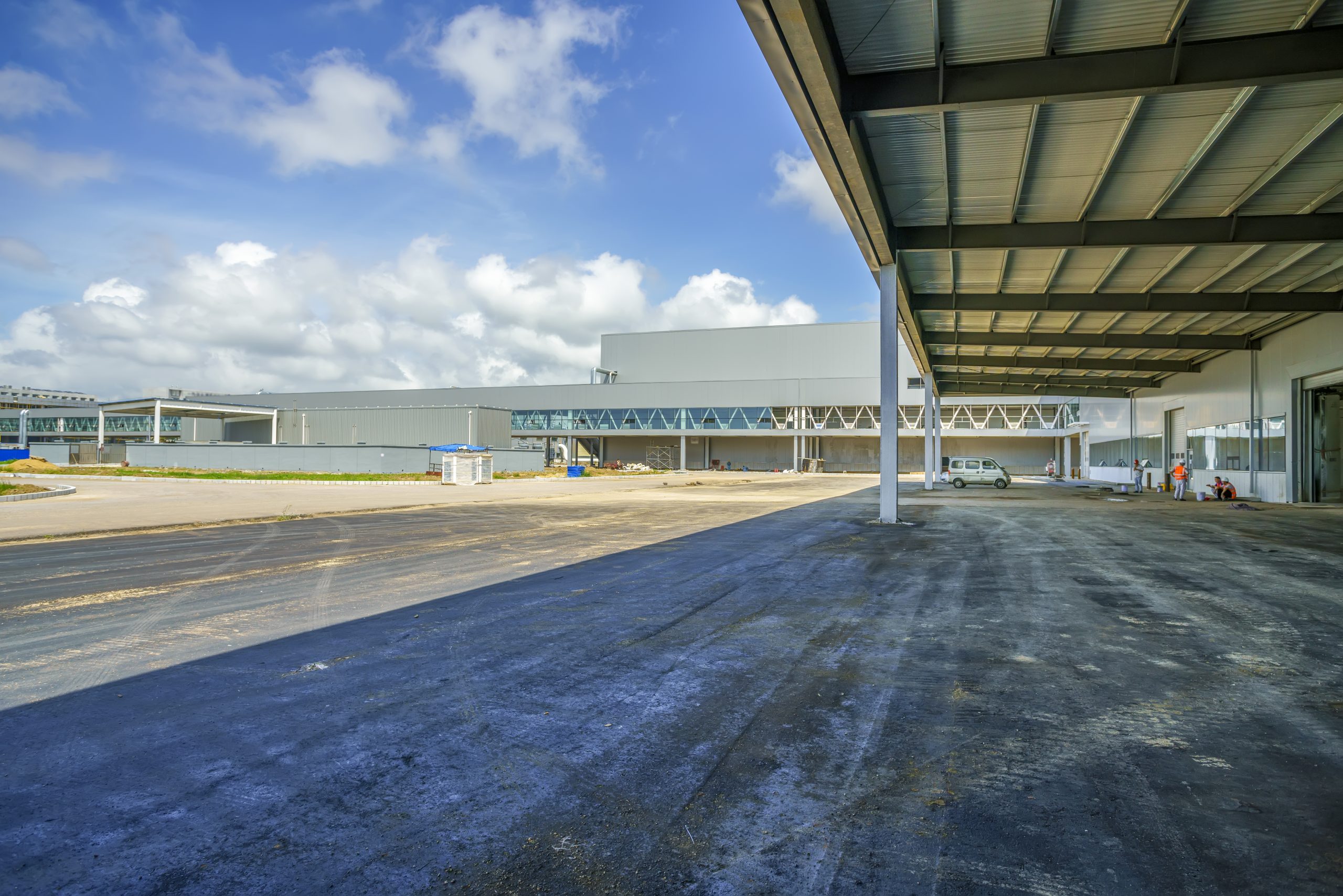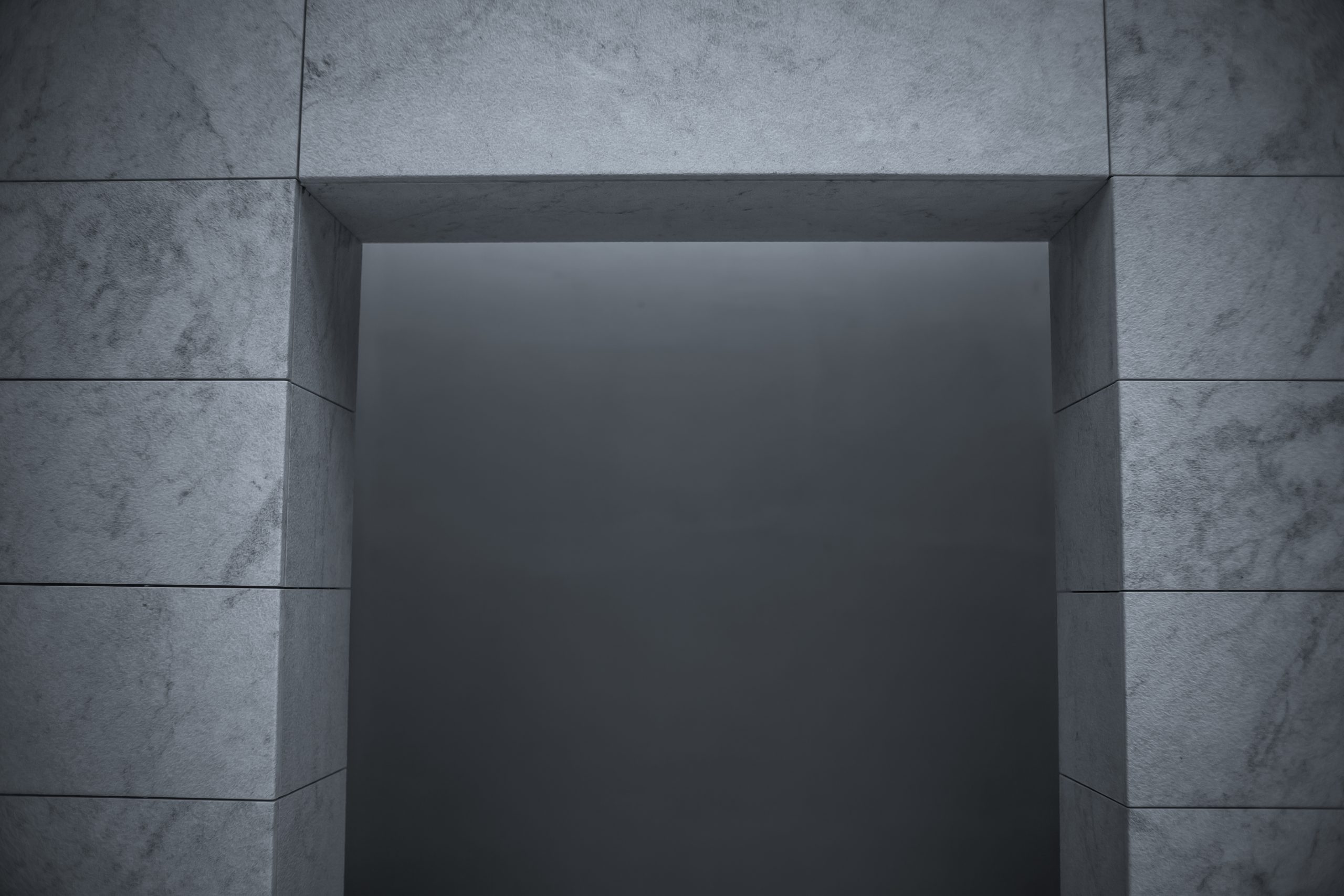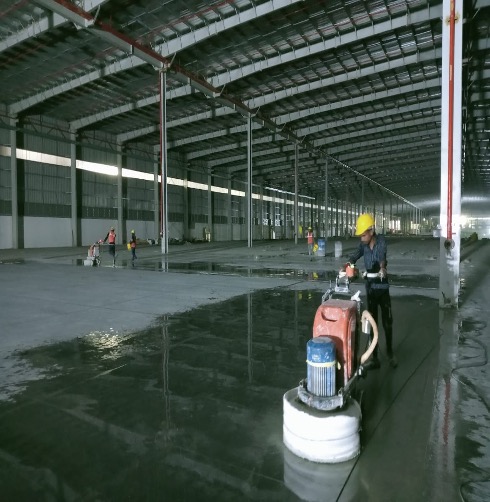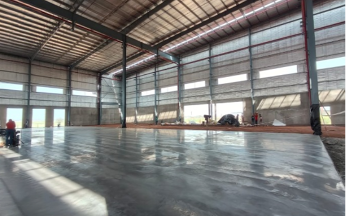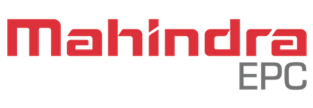Types of Densifiers for Concrete Floors: Enhancing Durability and Performance
Concrete floors are widely used in both commercial and industrial settings due to their durability, strength, and cost-effectiveness. However, to maximize the performance and longevity of concrete floors, they often require additional treatments, such as the application of densifiers. Densifiers are chemical treatments that penetrate the concrete surface, increasing its density, hardness, and resistance to wear. This article explores the different types of densifiers for concrete floors and provides an overview of the innovative solutions offered by Indus Company, a leader in steel concrete flooring.
Understanding Densifiers
Densifiers are typically applied to concrete floors to improve their surface characteristics. These chemical agents react with the calcium hydroxide in the concrete to form calcium silicate hydrate (CSH), which fills the pores in the concrete, making it denser and more durable. The result is a harder, more resistant surface that can better withstand heavy traffic, abrasion, and chemical spills.
Densifiers are particularly popular in industrial environments, warehouses, retail spaces, and other areas where concrete floors are subject to high levels of wear and tear. By using densifiers, facility managers can extend the life of their concrete floors, reduce maintenance costs, and enhance the overall appearance of the flooring.
Types of Densifiers for Concrete Floors
There are several types of densifiers available, each with its own unique properties and benefits. The most commonly used densifiers include:
- Sodium Silicate DensifiersSodium silicate densifiers are among the oldest and most commonly used densifiers. They are water-based solutions that penetrate the concrete surface and react with the free lime (calcium hydroxide) to form a harder, more durable surface. Sodium silicate densifiers are known for their ease of application and affordability, making them a popular choice for many industrial and commercial projects.However, sodium silicate densifiers can leave a white residue on the surface if not properly applied or if excess product is not removed. This residue, known as efflorescence, can be unsightly and may require additional cleaning or polishing to remove. Despite this, sodium silicate densifiers remain a cost-effective solution for many applications.
- Potassium Silicate DensifiersPotassium silicate densifiers are similar to sodium silicate densifiers but offer some distinct advantages. Potassium silicate densifiers tend to penetrate deeper into the concrete and produce a harder, more durable surface. They are also less likely to leave efflorescence on the surface, making them a preferred choice for projects where aesthetics are a priority.In addition to their improved performance, potassium silicate densifiers are also more resistant to chemical attack, making them suitable for environments where the concrete floor may be exposed to aggressive chemicals or cleaning agents.
- Lithium Silicate DensifiersLithium silicate densifiers are a relatively newer technology and are known for their superior performance and ease of use. Lithium silicate densifiers penetrate deeply into the concrete, reacting with the calcium hydroxide to produce a very hard, dense surface. One of the key advantages of lithium silicate densifiers is their ability to minimize efflorescence, resulting in a cleaner, more aesthetically pleasing finish.Lithium silicate densifiers are also more stable and less likely to react with other chemicals or compounds in the concrete, making them ideal for use in environments with challenging conditions. They are particularly well-suited for use in warehouses, manufacturing facilities, and other industrial settings where heavy equipment and high traffic levels are common.
- Colloidal Silica DensifiersColloidal silica densifiers are an advanced type of densifier that use nano-sized silica particles suspended in a liquid solution. These particles penetrate the concrete surface and react with the calcium hydroxide to form CSH, resulting in a highly dense and durable surface. Colloidal silica densifiers are known for their quick reaction times and ability to produce a high-gloss finish with minimal effort.Colloidal silica densifiers are particularly effective in enhancing the appearance of polished concrete floors, making them a popular choice for retail spaces, showrooms, and other areas where aesthetics are important. In addition to their performance benefits, colloidal silica densifiers are also environmentally friendly, as they are typically low in VOCs (volatile organic compounds) and safe for indoor use.
- Magnesium Fluorosilicate DensifiersMagnesium fluorosilicate densifiers are specialized products that are often used in conjunction with other densifiers to achieve specific performance characteristics. These densifiers are particularly effective at increasing the chemical resistance of concrete floors, making them suitable for use in environments where exposure to aggressive chemicals or acids is common.While magnesium fluorosilicate densifiers are not as commonly used as other types of densifiers, they are highly effective in specific applications, such as in laboratories, chemical processing plants, and food and beverage facilities.
Application of Densifiers
The application process for densifiers typically involves cleaning the concrete surface, applying the densifier with a sprayer or roller, and allowing it to penetrate the surface. The densifier is then left to react with the concrete for a specified period before any excess product is removed or the surface is polished. The exact application process may vary depending on the type of densifier used and the specific requirements of the project.
It is important to note that while densifiers can significantly enhance the performance and appearance of concrete floors, they are not a substitute for proper concrete design and installation practices. To achieve the best results, densifiers should be used in conjunction with high-quality concrete mix designs, proper curing techniques, and regular maintenance.
Indus Company: Innovating in Steel Concrete Flooring
Indus Company is a leading provider of innovative concrete flooring solutions, specializing in the use of steel fibers for reinforced concrete floors. With a commitment to quality and performance, Indus Company has established itself as a trusted partner for industrial and commercial clients seeking durable, high-performance flooring solutions.
Steel Fiber Reinforced Concrete
One of the key offerings of Indus Company is steel fiber-reinforced concrete (SFRC), a type of concrete that incorporates steel fibers to enhance its tensile strength, durability, and resistance to cracking. Steel fibers are distributed throughout the concrete mix, creating a three-dimensional reinforcement network that improves the overall performance of the concrete.
Steel fiber-reinforced concrete is particularly effective in applications where the concrete floor is subject to heavy loads, impact, or abrasion. The addition of steel fibers helps to prevent the propagation of cracks, reducing the need for traditional rebar reinforcement and minimizing the risk of structural failure.
Applications of Steel Fiber Reinforced Concrete
Indus Company’s steel fiber-reinforced concrete is used in a wide range of applications, including:
- Industrial Floors: SFRC is ideal for use in industrial facilities, warehouses, and manufacturing plants where heavy machinery, forklifts, and other equipment create significant stress on the concrete floor. The enhanced durability of SFRC ensures that the floor can withstand these challenges without cracking or deteriorating.
- Parking Structures: Parking garages and lots are subject to constant traffic and exposure to the elements, making them vulnerable to cracking and wear. SFRC provides the necessary strength and durability to ensure that these structures remain safe and functional for years to come.
- Pavements and Roadways: SFRC is also used in the construction of pavements and roadways, where its resistance to cracking and ability to distribute loads evenly make it an ideal choice for high-traffic areas.
- Precast Concrete Products: In addition to flooring applications, Indus Company also uses SFRC in the production of precast concrete products, such as panels, pipes, and barriers. The use of steel fibers in these products enhances their strength and durability, making them suitable for a wide range of construction projects.
Commitment to Quality and Innovation
Indus Company is dedicated to delivering high-quality concrete flooring solutions that meet the unique needs of each client. By incorporating the latest advancements in steel fiber technology and concrete densification, Indus Company ensures that its products offer superior performance, durability, and longevity.
In addition to its focus on quality, Indus Company is also committed to sustainability. The use of steel fibers and advanced densifiers reduces the need for traditional reinforcement methods and lowers the overall carbon footprint of concrete construction. This commitment to sustainability, combined with a focus on innovation, positions Indus Company as a leader in the concrete flooring industry.
Conclusion
Densifiers play a crucial role in enhancing the performance and durability of concrete floors, making them a valuable tool in both commercial and industrial applications. Whether it’s sodium silicate, lithium silicate, or advanced colloidal silica densifiers, each type offers unique benefits that can be tailored to specific project requirements.
Indus Company exemplifies the potential of combining advanced densifier technology with steel fiber-reinforced concrete to create flooring solutions that meet the demands of even the most challenging environments. By focusing on quality, innovation, and sustainability, Indus Company continues to set the standard for excellence in the concrete flooring industry

